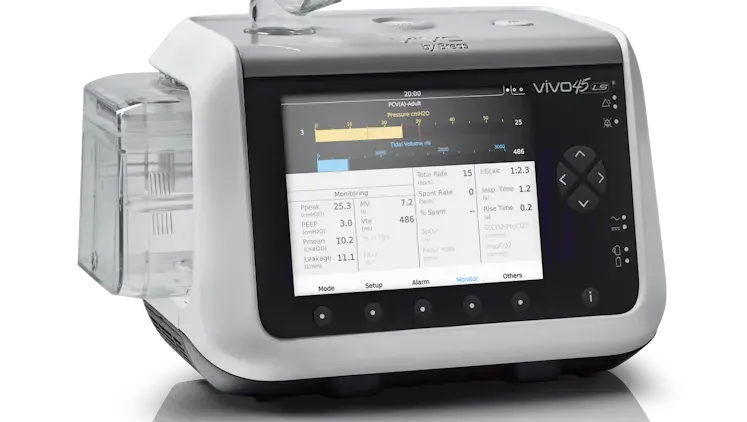Dive Brief:
- Breas Medical started a correction of more than 8,000 ventilators after identifying a risk of formaldehyde exposure, the company said Friday.
- The notice, which was shared by the Food and Drug Administration, states internal testing of Vivo 45 LS ventilator devices showed the potential for short-term exposure to elevated levels of formaldehyde under specific conditions.
- Breas, which had not received any related injury reports, has reduced the maximum room air temperature of the ventilators and updated its instructions for new devices to mitigate the risk.
Dive Insight:
The potential for ventilators to expose patients to formaldehyde, a chemical that can harm the lungs and nervous system, has prompted actions by the FDA and companies including GE Healthcare over the past two years. Breas began a nationwide U.S. correction of 8,186 Vivo 45 LS ventilator devices on Aug. 5.
Internal testing of the Vivo 45 LS, a small, portable ventilator, showed the potential for elevated levels of formaldehyde that could cause effects including reversible airway irritation or inflammation. In children, the effects could lead to asthma and require additional medical interventions to manage.
Breas has updated the instructions for use to mitigate that risk. The update, which applies to devices manufactured from February 2021 to July 2024, lowers the maximum room air temperature for use of the ventilators from 104 degrees Fahrenheit (40 degrees Celsius) to 86 F (30 C). Breas is also requiring buyers of new devices shipped through July 24 to run the ventilators for 14 days before using them on patients.
The changes are similar to earlier updates from GE Healthcare, which reduced the maximum operating temperature of its EVair and EVair 03 compressors from 104 F to 86 F and began running devices for one week before clinical use.

